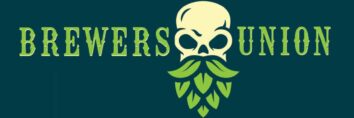www.HomeBrewingBlog.com
Terminology Worksheet
Download a Printable PDF of This Worksheet
Everyone wants to be a successful brewer and have their beer taste amazing. Learning the terminology is an important part of that process which is why we have created this terminology worksheet.
To learn these terms, I recommend you make your own list. Use mine a reference for defining your terms (our is a very short list anyway), but on your brew day, while you’re waiting for a boil, print out this worksheet, sit down with a pencil and paper, and fill it out. In addition, try to refer to every piece of equipment by is brewing name. Don’t call it a pot, call it a brew kettle.
Soon you will be naturally integrating the brewing jargon into your mental dictionary and you won’t have to think about what a term means. This will allow you to understand reading material faster and communicate effectively with other brewers.
Easy Action Steps:
- Get a pencil and Paper
- Print out this document
- Follow the instructions below to fill it out
- Without looking at the glossary of terms, try to explain the term
- Cross-reference your definition with the one provided
Lets Get Started
1) List all the terms that are used on the recipe:
For each term you listed, explain what it means:
Now go to the glossary (or find a more indepth one online). and correct your definitions if needed:
2) Go through your brewing equipment, and list the brewers name for every piece of equipment:
For each term you listed, explain what it means:
Now go to the glossary and correct your definitions if needed:
3) Go through the process of bottling in your head and list all the terms you can think of:
For each term you listed, explain what it means:
Now go to the glossary and correct your definitions if needed:
4) Go through the process of fermentation in your head and list all the terms you can think of:
For each term you listed, explain what it means:
Now go to the glossary and correct your definitions if needed:
5) Go through the process of boiling in your head and list all the terms you can think of:
For each term you listed, explain what it means:
Now go to the glossary and correct your definitions if needed:
6) Refer to my list and see if you missed any terms:
For each term you listed, explain what it means:
Now check the glossary and correct your definitions if needed:
Glossary
- Ale – A beer fermented at 68 – 72 degrees. This is different from a lager that’s been fermented at colder temperatures with different yeast.
- Alpha Acids – The acids contained in hops that get infused into beer during the boiling process and make beer bitter.
- Alpha Acid Unit (AAU) – A measurement of the alpha acids in hops.
- Alcohol By Volume (ABV) – The measurement most often used by brewers to express the percent of the beer that is alcohol.
- Alcohol By Weight (ABW) – Used in a few states, but generally not in home brewing, ABW measures alcohol as a percentage of the total mass.
- All-Grain (AG) – A “from scratch” method of brewing that does not use extracts. AG brewers use malted grains and go through a longer brewing process, but have much more control over the taste of their beer.
- Dry Malt Extract – Used for extract brewing. Instead of being in a syrup form like liquid malt extract, it is in a powdered form.
- Grist – Sometimes malted grains are not the only grains used in brewing. The total body of grains used in a brewing a beer is called grist. There needs to be at least 50% malted grain such as barley or wheat. Zero to 50% (approx.) of the mash may be unmalted cereal grains, flour, or other forms of starch (e.g., pumpkin, potato, etc.).
- International Bittering Unit (IBU) –This is used to measure how bitter a beer is. 1 IBU=1 mg iso alpha acid in 1 litre of wort.
- Kettle (or Brew Kettle) – The pot used to boil your wort, or unfermented beer.
- Krausen Line – The brown foamy ring around the top of the fermenter that’s formed because of Krausen.
- Lager – Beer that’s been produced using bottom-fermenting lager yeasts and the process of lagering.
- Lagering or Lager – Storing beer for a long time at low temperatures in order to ferment the beer very slowly or allow undesireable yeast and protiens to fall out. This is the process that creates such clear lager beers.
- Lautering – The word for draining wort, the unfermented beer, from the mash.
- Malt – Grain (usually barley) that has been put through a sprouting an drying process making sugars more available. You use malted grains in beer.
- Mash (noun) – The mix of malted grains and hot water, usually in the mash tun.
- Mash (verb) – The process of extracting sugars in the grain, so they can be used in beer.
- Maris Otter – A common variety of Barley used in many beers.
- Mash Tun – The vessel in which you mix crushed, malted barley and hot water to create wort, the unfermented beer.
- National Homebrew Competition (NHC) – A well recognized competition for home brewers in the US
- Noble Hop – European hops such as Hallertauer, Saaz, Tettnanger, Spalter which have been specially bred so as to virtually eliminate the male version of the plant, so there are no seeds in the cones (flowers). They generally are low in bitterness and high in aroma.
- Parts per Million* (PPM) – also known as (mg/l)
- Prime – Adding sugar to fermented beer just before bottling so that carbination is created.
- Specific Gravity (SG) – It’s a measurement of the amount of particles (mostly sugars) in a liquid. This measurement is taken with a Hydrometer. Brewers subtract Final Gravity (FG), the gravity measurement after fermentation, from Original Gravity (OG), the measurement right before fermentation, to determine the amount of alcohol in their beer.
- Sparge – A process of extracting extra sugars from the grains after they have already been soaked once (called the mash).
- Trub – The extra stuff left at the bottom of the brew kettle after boiling.
- TriSodium Phosphate (TSP) – A beer cleaning product.
- White Labs (WL) – One of the two top brands of yeast along with Wyeasts.
- Wort – Pronounced wert (like word) – Unfermented beer that comes from malted grains.
- Wyeast (WY) – One of the two top yeast brands along with White Labs.
')}

